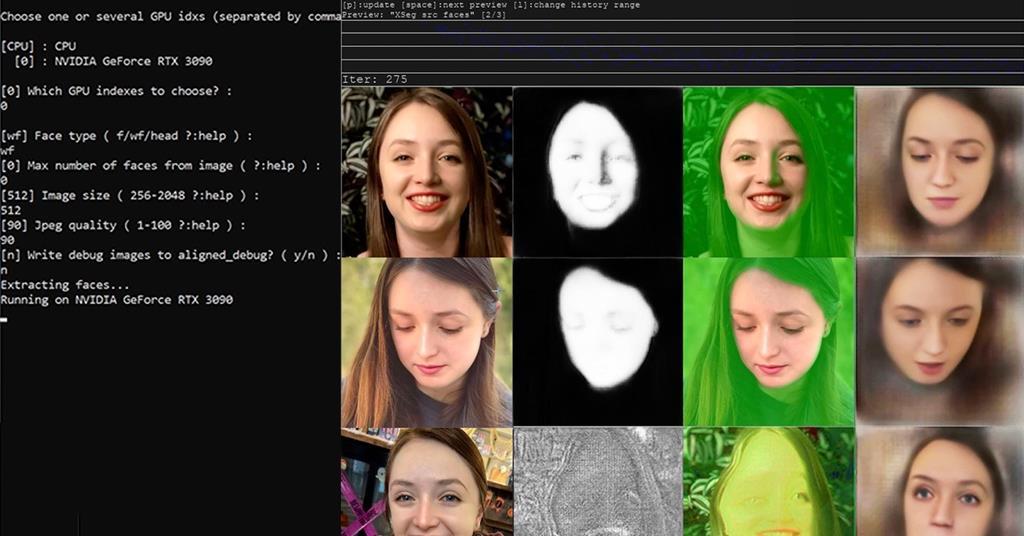The legal principle of “another body” is cited by local and state law enforcement to not pursue charges against the creators of deepfake pornography, content easily generated by online communities that mostly focuses on celebrities and political leaders. The issue is just starting to gain traction as the technology becomes cheaper and easier, and as troubled, vindictive men (both young and old) experiment and take requests on message boards.
While targets of deepfake porn include every actress in Hollywood along with frequent targets of misogyny (e.g. Alexandria Ocasio-Cortez and Greta Thunberg), they do enjoy one advantage that an anonymous college student does not: it would never be assumed to be real nor disqualifying for future prospects.
Another Body is a real story told, like David France’s Welcome to Chechnya, with the assistance of digital facial replacement allowing its subjects to speak anonymously rather than mask faces and voices in a way that’s ultimately distracting. While the use of artificial intelligence in documentary filmmaking has been controversial when it hasn’t been disclosed––such as in Morgan Neville’s Roadrunner: A Film About Anthony Bourdain––here directors Sophie Compton and Reuben Hamlyn reveal its use upfront, showing the process while allowing their collaborator “Taylor” to speak freely about her experience. She was an engineering student attending a technical college in Central Connecticut who has gone on record to discuss the horror of having friends share links showing her real name, college, and other identifiable information alongside several fabricated pornographic videos.
When reaching out to the police she is met with silence; she’s practically told to shut her computer off and ignore it. Connecticut––along with several other states, as lawyer Adam Dodge explains––has no laws on the issue, which is different than “revenge porn” (the public sharing of private images) while platforms are protected under Section 230. They are not producing the content, but serving a distribution platform.
For those like Taylor and college suite-mate Julia, also a victim, their ability to fight back is limited––going public can only fan flames. Julia and Taylor quickly figure out a likely perpetrator: a former friend, Mike, who has since turned creepy, exhibiting big incel energy on 4Chan and Twitter. Being weird isn’t necessarily a crime, and his conduct walks right up to a line, widely participating in various Photoshop challenges. Taylor and Julia are able to enlist the help of another victim with enough capital to speak out freely: Gibi, an ASMR YouTuber who has also been the target of Mike’s deepfakes and 4Chan Photoshopping.
Told largely over screens, including video chats, as Taylor and Julia piece together the mystery with the help of their offscreen boyfriends, Another Body dives into the recesses of 4Chan communities where deepfakes are produced on demand. Compton and Hamlyn structure the film like a thriller in the style of Searching and Missing as they examine the digital breadcrumbs that lead to Mike’s digital footprint.
Another Body is a fitting film to premiere during the SXSW film and technology conference, where ethical issues involving ownership, digital rights, artificial intelligence, and copyright will be discussed and debated. What seems like a cut-and-dry moral issue is much messier. The film stays grounded and puts its spotlight on the victims, only occasionally bringing in lawyers like Dodge, who encourages Taylor not to be silent about her experience.
A film like this is essential viewing. The directors keep the experts to a minimum and focus primarily on the victims; it may in fact save another victim’s life while shedding light on speech that ought not to be protected when its sole aim is having a real-world harm. While many tech documentaries tend to recap issues already known, Another Body centers largely on the experience of being a victim rather than bringing in talking heads to explain how complicit big tech is in exploring and creating a mental-health crisis.
Another Body premiered at SXSW 2023.

